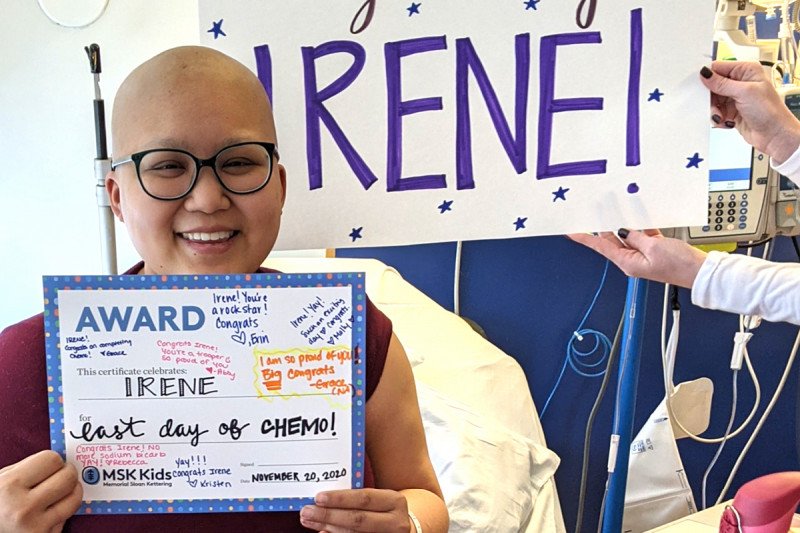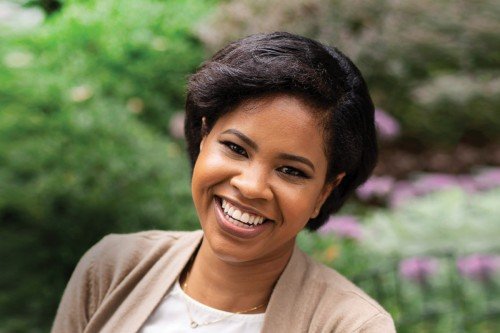
Imagine: Just as you’re finding your footing in the real world — graduating school, starting a new job, getting married, building a family — you’re diagnosed with cancer. It sounds implausible, but it happens to 90,000 teens and young adults in America each year.
“Nobody is expecting to get cancer at age 25, 35, even 45,” says Hadley Maya, who is a social worker at Memorial Sloan Kettering Cancer Center and supports patients and families receiving care through MSK’s Center for Young Onset Colorectal Cancer.
She recently sat down with MSK medical oncologist Diane Reidy-Lagunes, the host of the Cancer Straight Talk from MSK podcast, to discuss the unique challenges of being a teen or young adult with cancer. One of the first big difficulties these patients face is just accepting the diagnosis.
“The shock is enormous,” Ms. Maya says. “You’re working so hard to be independent, and then suddenly you have this enormous need for care and support.”
Dr. Reidy-Lagunes says patients often feel “catapulted back to childhood” after being diagnosed, as they relinquish much of their newly won autonomy to treatment.
Supporting Young People with Cancer
Recognizing the distinct needs of these patients, MSK founded the Lisa and Scott Stuart Center for Adolescent and Young Adult Cancers in September 2021. This comprehensive clinical and research center is transforming the experience, care, and outcomes for this often-underserved group.
Specialty services, like the TYA (Teen and Young Adult) Program, are hallmarks of the Stuart Center. There are in-person events and a physical hang-out space in the hospital (stocked with unlimited snacks and soda, of course) for MSK patients ages 16 to 30. There’s also a social media platform so that patients can connect virtually and in real life.
The TYA services fall under the larger umbrella of MSK’s Adolescent and Young Adult (AYA) Program, which unites members of patients’ care teams to help them navigate treatment. Integrative medicine specialists, financial counselors, social workers, fertility nurses, and more collaborate with a patient’s primary medical team to ensure that each person receives care tailored just for them.
Personal Stories
In the podcast episode, three MSK patients shared what it’s like being a young person with cancer. Irene, describes being diagnosed with osteosarcoma when she was 25. She credits her nurses with helping her navigate the isolation she felt being treated alongside young children.
“They helped me pick up the pieces of my identity,” she says. “They gently and persistently reminded me that yes, I am a cancer patient, but also that I am still a future speech pathologist and grad school is still ahead of me.”
Srinivas was a 32-year-old newlywed when he was diagnosed with rectal cancer. He and his wife were afraid that cancer would upend their plans for a family. But he preserved his fertility and today has two children. Still, the path toward parenthood as a person with cancer is filled with feelings of loss, Ms. Maya says.
“What I always come back to when I think about the young adult population is a constant shifting or recalibration of expectations,” Ms. Maya says. “We have expectations about what’s supposed to be happening and suddenly all of that becomes interrupted. There’s a lot of loss with that, and with loss, of course, comes grief.”
Finding community helps. Abdullah, who was diagnosed with lymphoma when he was 24, said he felt out of place watching people three times his age receive chemotherapy with him. But MSK’s survivorship services or young adults helped him feel less lonely.
“It’s very difficult for people to relate with what you’re going through,” Abdullah says. “You feel alone, regardless of how many friends you have.” When he learned of the survivorship offerings, he says, “I thought: You know what? This would actually be helpful.”
Fulfilling a Mission
It’s no easy feat caring for young people so sick, but Ms. Maya says it’s a privilege “to witness these incredibly powerful moments of people’s lives.” And each day, she adds, we’re learning more and more how best to serve this particular group.
“We’ve spent a lot of time talking with young adult patients, doing research, and trying to understand: What are these needs and how can we meet them?”





